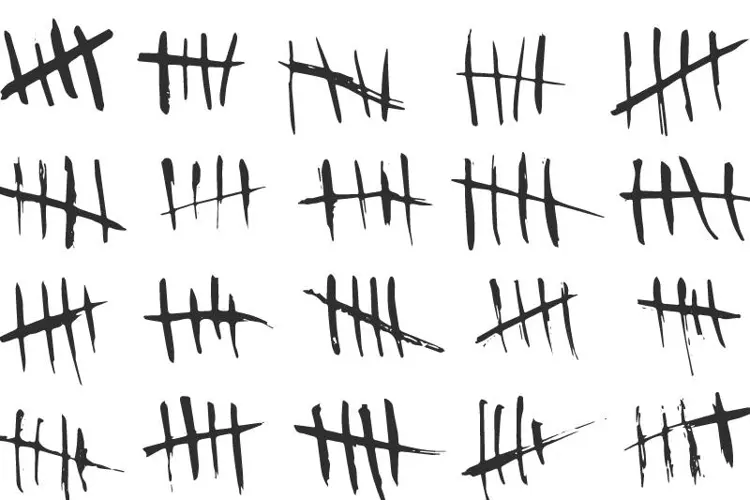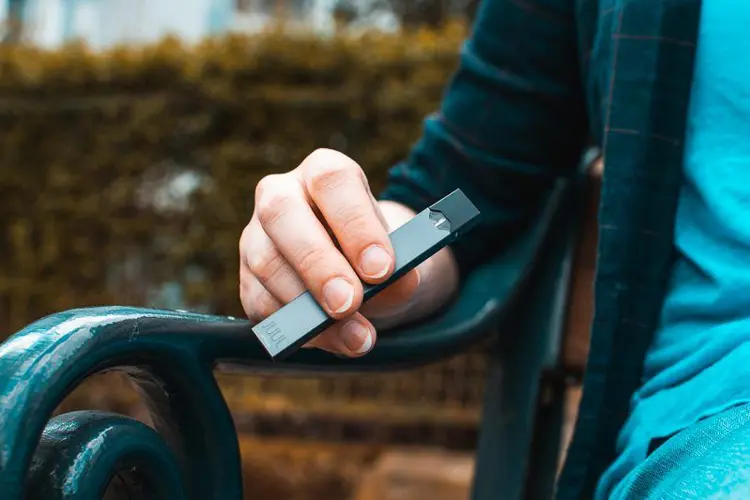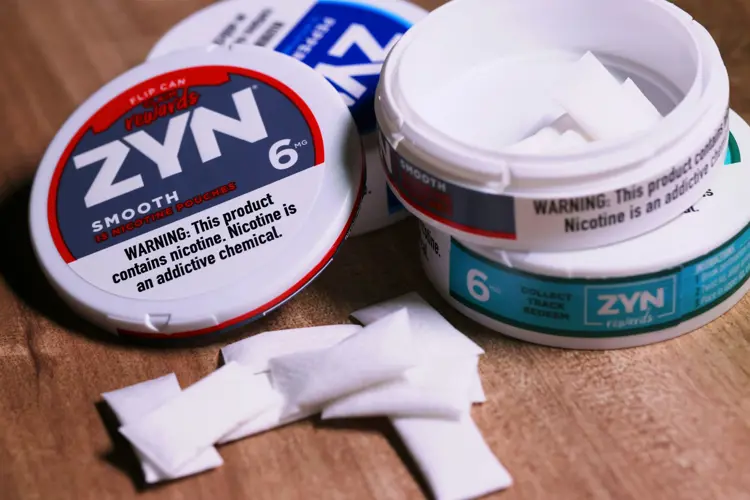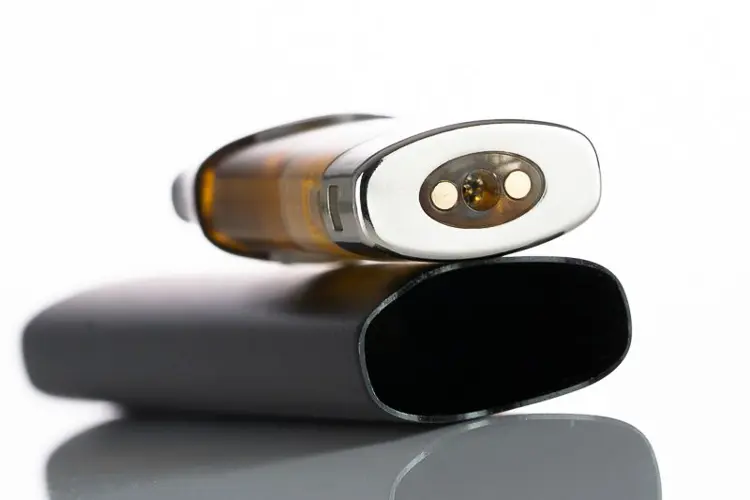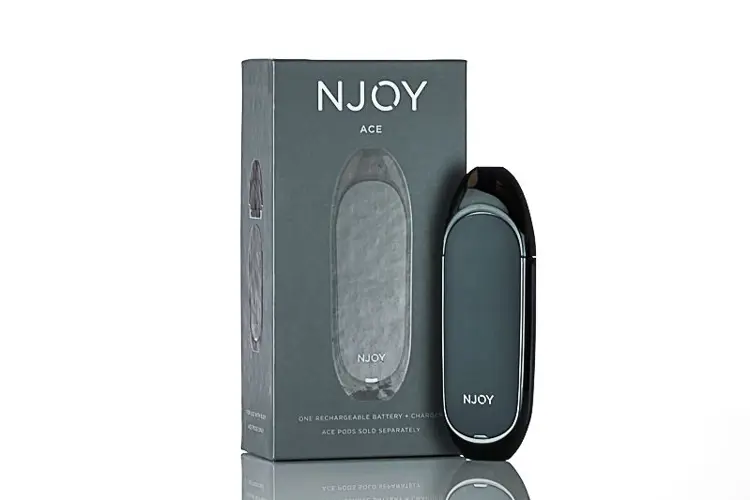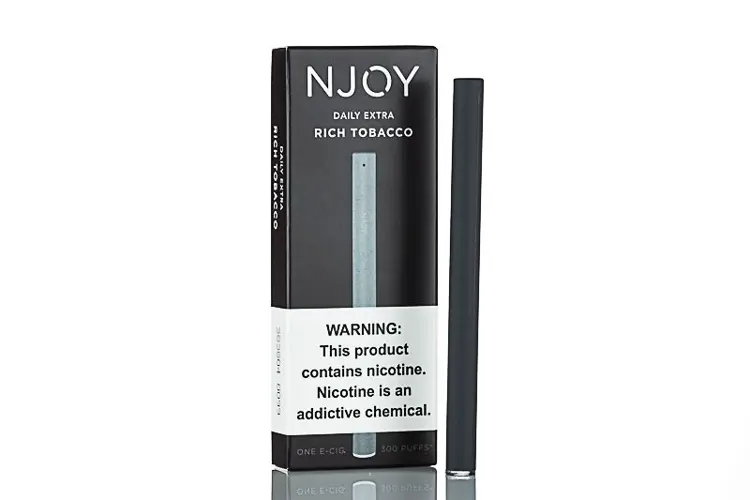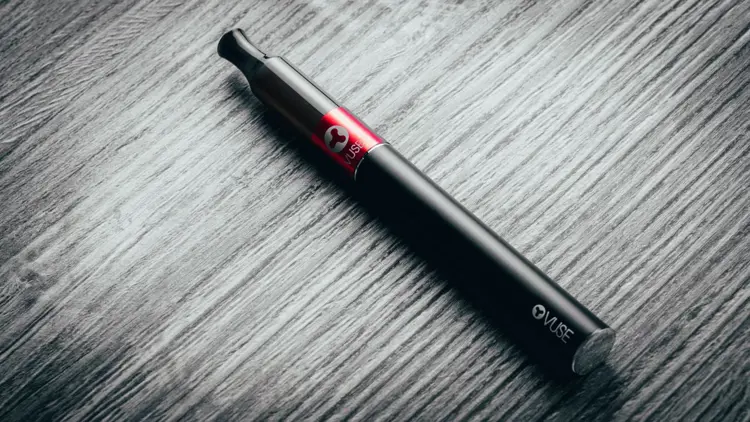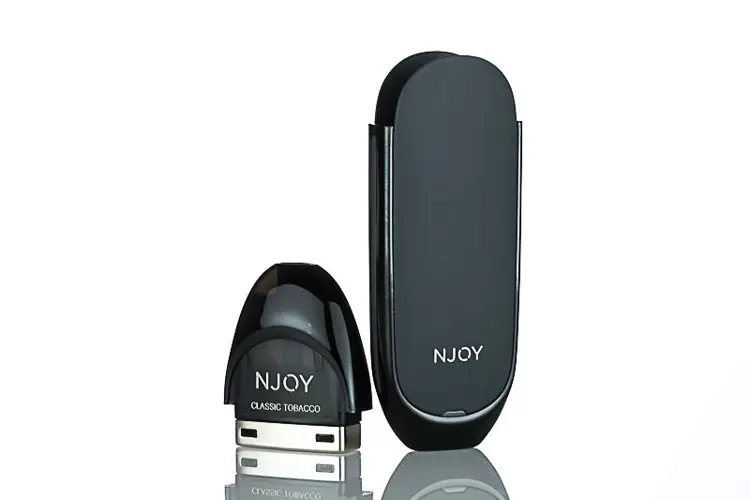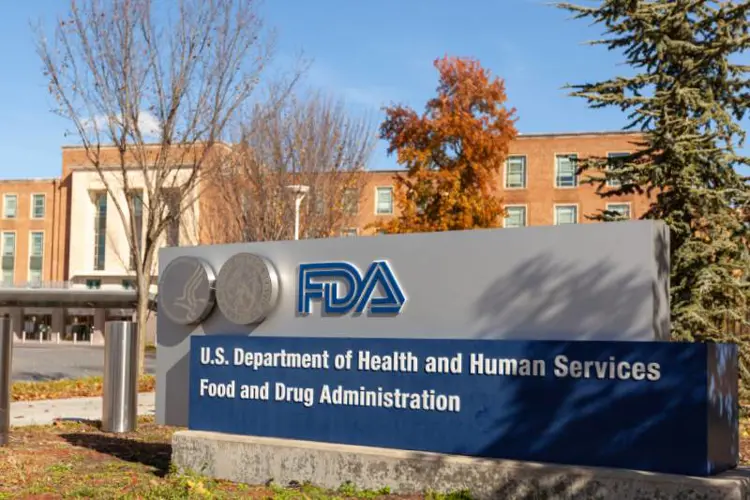In a press release issued Wednesday after business hours, the FDA announced that more than 200 manufacturers of synthetic nicotine products submitted over a million Premarket Tobacco Applications (PMTAs) before the May 14 deadline. As of July 14, the agency says it is illegal to market any of those products.
A rider inserted in the federal omnibus spending bill passed by Congress in March granted the FDA new authority over all forms of nicotine, regardless of the source. That language modified the 2009 Tobacco Control Act to include nicotine not derived from tobacco.
The March 2022 law mandated immediate FDA regulatory actions, set out a deadline for PMTA submission for synthetic-based products (May 14), and granted a 60-day grace period (until July 13), during which products could remain on the market without authorization.
Warning letters make FDA look tough
The FDA's Wednesdaypress release linked a list of 107 retailers that received warning letters for selling synthetic nicotine-based products (not necessarily just vaping products) to minors. All but one of the letters were issued on June 30, and most appear to have gone to smoke shops, convenience stores and gas stations.
"Outside of COVID times, the FDA and its state partners are always conducting youth access compliance checks,” American Vaping Association President Gregory Conley told Vaping360. “FDA tends to put out media releases trumpeting their routine work in the aftermath of a bad press month.”
The agency also issued warning letters to two small manufacturers for selling products without first submitting a PMTA. The companies had previously registered with the FDA when manufacturing e-liquid with tobacco-derived nicotine.
The FDA can send as many warning letters as it likes, but the only way it's going to clear the market of illicit products is to legalize options adults actually want to use. https://t.co/iH0BYuubJP
— Jacob Grier (@jacobgrier) July 14, 2022
"The lowest of low-hanging fruit for the FDA are U.S.-based companies that previously registered tobacco-derived nicotine products, but later switched to synthetic nicotine and did not file PMTAs,” Conley said. “This is another case of the FDA punting on tough decisions and instead targeting small business manufacturers of open system vaping products."
After the September 2020 PMTA submission deadline for tobacco-derived nicotine vaping products, the FDA used its manufacturer database to find and cite small companies that didn’t file PMTAs. The agency issued stern press releases after each batch of warnings.
FDA enforcement and enforcement discretion
The FDA noted in its press release that after July 13, “any new non-tobacco nicotine product that has not received premarket authorization from FDA cannot be legally marketed.” However, the agency didn’t elaborate on whether synthetic-based products would be a high priority target for enforcement.
“In the coming weeks, we will continue to investigate companies that may be marketing, selling, or distributing non-tobacco nicotine products illegally and will pursue action, as appropriate,” said FDA Center for Tobacco Products (CTP) Director Brian King, who began work at the agency less than two weeks ago.
The FDA doesn’t have resources to investigate and seize all of the unauthorized synthetic (or non-synthetic) nicotine products sold across the country. It must focus its efforts based on priorities set by agency leadership.
Technically, all vaping products without FDA authorization are on the market illegally, and have been since the Deeming Rule gave the FDA authority over e-cigarettes on Aug. 8, 2016. Except for the half-dozen or so devices authorized by the agency since last fall, all vaping products exist on the U.S. market solely because of FDA enforcement discretion.
A million applications and dozens of manufacturers ready and willing to sue if need be.
Not to mention the untold numbers of American retailers who aren't just going to pull products off their shelves. https://t.co/ywubIzfMbL
— Gregory Conley (@GregTHR) July 14, 2022
On Sept. 9, 2021—the end of the one-year blanket enforcement discretion period for manufacturers that submitted timely PMTAs for vaping products made with tobacco-derived nicotine—the FDA made a similar statement to the one issued Wednesday evening: “All new tobacco products on the market without the statutorily required premarket authorization are marketed unlawfully and subject to enforcement action at the FDA’s discretion.”
Wednesday night, a series of tweets from FDA Commissioner Robert Califf repeated the language from the press release, then added, “Addressing products with large market share that pose the greatest risk to youth is of high importance.”
That seems to indicate that the FDA will focus enforcement efforts on the countless synthetic nicotine-based disposable vapes sold in tens of thousands of convenience stores and gas stations (and some vape shops too). Synthetic nicotine-based bottled e-liquids are almost exclusively sold in age-gated vape shops, and are not popular with teenage vapers.
.@US_FDA raised alarm about the threat to America’s kids from vaping synthetic nicotine. So I led a bipartisan effort to close this loophole and provide FDA tools to protect public health. But the deadline is today to remove unauthorized e-cigs from the market.
Will FDA act?
— Senator Dick Durbin (@SenatorDurbin) July 13, 2022
Some of the e-liquid manufacturers selling synthetic nicotine-based vape juice have been doing so for years. But most launched synthetic e-liquid lines after the FDA began issuing millions of boilerplate MDOs last August for virtually all vape products in flavors other than tobacco or menthol.
A large portion of the 200 manufacturers seeking authorization for synthetic products through the PMTA pathway are members of the American Vapor Manufacturers Association (AVM), which represents mainly small companies that make and sell e-liquid. In June, AVMfiled an FDA citizen petition, asking the agency to extend formal enforcement discretion to manufacturers that filed applications before the deadline and have shown themselves to otherwise follow FDA rules and local laws.
Nearly 4,000 people have so far commented on the FDA citizen petition docket, many through a call to action issued by CASAA. While the FDA will eventually have to formally respond to the AVM citizen petition, its statements yesterday seem to indicate that, while it isn’t prepared to officially grant enforcement discretion, the agency will not focus enforcement efforts on bottled e-liquid sold in adult-only stores.
Pressure from TFK and Congress lead to FDA missteps
The FDA faces incredible pressure from the Campaign for Tobacco-Free Kids (TFK) and its allies in Congress to remove all synthetic nicotine-based products from the market. Much of the anti-synthetic hoopla can be traced to one product: Puff Bar.
In July 2020, disposable vape manufacturer Puff Bar (or an importer claiming to be the manufacturer) announced it would end U.S. sales just days before receiving a warning letter from the FDA. Then in March 2021, a company claiming to be Puff Bar announced the device was returning to store shelves, but would now use synthetic nicotine, shielding the company from FDA rules and enforcement.
Democratic U.S. Representative Raja Krishnamoorthi, a staunch anti-vaping legislator from Illinois, wrote an unhinged letter to Acting FDA Commissioner Janet Woodcock demanding that the FDA “use all tools at its disposal, including seizure, injunction, and criminal prosecution, to hold accountable the individuals responsible for these flagrant violations of law.”
The problem was that Puff Bar was not violating the law if it actually used synthetic nicotine as it claimed. The 2009 Tobacco Control Act granted the FDA authority over products containing nicotine “made or derived from tobacco.” The FDA couldn’t ban the new disposables.
Thanks @SenatorDurbin for calling out @FDATobacco’s backtracking on @JUULvapor denial and failure to pull synthetic nicotine vapes that haven’t applied for agency approval! https://t.co/S50C0O03KM via @YouTube
— ParentsAgainstVaping (@ParentsvsVape) July 14, 2022
In August of last year, when the FDA began issuing PMTA denials to many small manufacturers of bottled e-liquid, many of those companies reformulated their products using synthetic nicotine to remain on the market legally. Some made the mistake of announcing the move on social media, which found its way into some news stories.
That sent Tobacco-Free Kids into a tizzy. The group sent a letter to Acting FDA Commissioner Woodcock—its third letter to the agency regarding synthetic nicotine—actually citing a Facebook post by a tiny e-liquid manufacturer that claimed switching to synthetic nicotine would put their products “outside of the FDA’s regulations.” This must not stand, said TFK.
The letter was also signed by the American Academy of Pediatrics, American Cancer Society Cancer Action Network, American Heart Association, American Lung Association, Parents Against Vaping e-cigarettes (PAVe), and Truth Initiative. These groups demanded that the FDA immediately declare synthetic nicotine a drug, which would hand regulatory authority to the FDA Center for Drug Evaluation and Research (CDER).
Other tobacco control advocates disagreed with that approach. Because the FDA had twice before attempted to regulate nicotine as a drug and failed, they preferred a change in the law that would give the CTP authority over all forms of nicotine. In December 2021, New Jersey Rep. Mikie Sherrill introduced a House bill that would do just that. It was co-sponsored by Rep. Krishnamoorthi and Utah Republican Rep. Chris Stewart.
🚨🔎
BREAKING: We have formally asked the Inspector General of HHS @OIGatHHS to investigate unethical political interference between Congress and FDA. Here’s our letter. pic.twitter.com/z2Ztu0j4YX
— American Vapor Manufacturers (@VaporAmerican) July 12, 2022
The bill never reached a committee hearing and was never debated or voted on, but its language became the basis for the rider inserted in the March spending bill that became law. Interestingly, the synthetic nicotine law was supported by Juul Labs and Vuse manufacturer RJ Reynolds, makers of the two most popular vaping products in the country. The main competitiors to Juul and Vuse? Flashy disposables also sold in traditional convenience stores and gas stations.
Since last year’s letters to the FDA from Krishnamoorthi and TFK, anti-vaping extremists in Congress have kept up pressure on the FDA to throw out its mandated scientific review process and just ban things—ban all vape flavors, ban Juul, ban synthetic nicotine products. When the FDA doesn’t do as it’s told by TFK and congressional prohibitionists like Senator Dick Durbin, faces get red and threats begin flying.
A July 8 STAT News article described anti-vaping groups as “apoplectic” because the FDA had not taken action against any companies selling synthetic-based products without having submitted a PMTA. Durbin said he would investigate the agency.
Anti-vaping groups, according to STAT, expected the FDA to “take swift action” and “pull all products with pending applications off the market.” On July 12, a day before the FDA’s synthetic announcement, TFK issued a press release demanding immediate action by the agency.
“As we approach the July 13 deadline,” said TFK President Matthew Myers, “the FDA has an obligation to enforce the law and clear the market of any synthetic nicotine products, including e-cigarettes, that have not obtained FDA authorization by that date. If the FDA allows unauthorized products to remain on the market, it will be directly contrary to the law passed by Congress and leave America’s kids at risk. There is no excuse for the FDA failing to act given the mandate and deadlines established by Congress.”
All unauthorized synthetic nicotine products are now illegal. The FDA’s failure to fully enforce the law and clear these products from the market is unacceptable. It ignores explicit deadlines set by Congress and puts America’s kids at risk.https://t.co/DhWFyH87HT
— Campaign for Tobacco-Free Kids (@TobaccoFreeKids) July 14, 2022
Sen. Durbin piled on. In his July 12 letter to FDA Commissioner Califf, also signed by Maine Republican Sen. Susan Collins, Durbin chastised the agency for its previous failures to stamp out vaping and said the FDA “appears to be on the brink of failing yet again at protecting our nation’s children from the dangers of nicotine addiction.”
Nothing illustrates how the political pressure from Durbin, TFK and their allies has twisted the FDA into knots better than the agency's actions pertaining to Juul Labs and its PMTAs.
Last month, the day before the FDA issued a flimsy MDO ordering all Juul products off the market based on questionable claims by the FDA, Durbin had done the very same thing, issuing a press release beating up the FDA for its supposed inaction on vaping and urging Califf to “do his job to protect our children or step aside.”
Krishnamoorthi and a staff aide to Durbin both appeared on a Parents Against Vaping (PAVe) webinar to celebrate the Juul MDO and brag about their influence on the FDA. “So I am so heartened that the FDA—after I and my office actually had a long conversation with the FDA commissioner about this—finally decided to stop JUUL from [selling products],” Krishnamoorthi told the anti-vaping group less than 24 hours before a federal court temporarily stayed Juul's denial order. Soon after, the FDA was forced to back down and reverse its decision, granting its own stay of the MDO and promising a fresh review of the vaping company’s PMTA.
The synthetic authorization process: 60-day PMTAs
Despite pressure from Congress and anti-vaping groups, the FDA cannot simply issue prohibition edicts for products it doesn’t like. The agency must follow its established PMTA process or be vulnerable to legal challenges from manufacturers.
The FDA is still fighting dozens of lawsuits stemming from its mishandling of the first round of PMTAs, when the agency—under congressional pressure and desperate to quickly dispose of millions of applications—issued new PMTA requirements in 2021 and then applied them retroactively to applications that had been submitted nearly a year earlier. The agency used these after-the-fact requirements to create a boilerplate denial system for PMTAs.
One federal court panel, reviewing a denied application, called the bizarre FDA maneuver a “surprise switcheroo,” and issued a stay of the manufacturer’s Marketing Denial Order (MDO). Other manufacturers have also received stays, and the FDA has rescinded MDOs outright for some companies.
The CTP said in its press release it is “preparing to issue refuse-to-accept (RTA) letters soon for those applications that do not meet the criteria for acceptance.” Acceptance is the first stage in the FDA’s PMTA review process, requiring only that the application itself meets statutory and regulatory requirements.
FDA clearly doesn't have the resources to review marketing applications for synthetic nicotine products within a months-long timeframe, but certain senators think regulation shouldn't be hard because their definition of "regulation" simply means "ban." https://t.co/L69Ih26H3n
— Alex Norcia (@Alex_Norcia) July 13, 2022
After Acceptance, the stages of review become progressively more difficult: Filing is next, and then Substantive Review, during which the agency is supposed to analyze the actual data presented in the application.
The biggest problem faced by manufacturers of synthetic nicotine-based products is the extremely short period of time Congress allotted for applications. Nobody believes a quality PMTA can be created in two months, which is all the time manufacturers were given.
“Companies had 60 days to present extensive, time-consuming, and expensive research findings to the FDA,” AVM President Amanda Wheeler said in a statement. “The limited number of labs have a minimum six-month wait time and most analyses take 12 to 24 months to complete, yet the FDA has wholly ignored these facts.”
The foreshortened timeline forced on manufacturers by Congress (and executed by the FDA) may very well be grounds for legal challenges of future FDA denial orders. The FDA is certainly aware of this, and despite the pressure it faces from anti-vaping groups and blowhard politicians, the agency will probably not issue hundreds of thousands of boilerplate denials, as it did in 2021.
Stay tuned.
Previous Vaping360 synthetic nicotine coverage
Will Puff Bar Force FDA to Regulate Synthetic Nicotine? (March 9, 2021)
The Promise and Peril of Synthetic Nicotine as a PMTA Loophole (Sept. 7, 2021)
Krishnamoorthi Investigates Synthetic Nicotine (Nov. 8, 2021)
House Bill Would Treat Synthetic Nicotine as Tobacco (Dec. 23. 2021)
Trouble Ahead: New Hemp Cigarettes Contain Synthetic Nicotine (Feb. 10, 2022)
Senate Vote on Synthetic Nicotine Likely to Happen by Friday (March 8, 2022)
Congress Gives FDA Authority Over Synthetic Nicotine (March 11, 2022)
The Freemax REXA PRO and REXA SMART are highly advanced pod vapes, offering seemingly endless features, beautiful touchscreens, and new DUOMAX pods.
The OXVA XLIM Pro 2 DNA is powered by a custom-made Evolv DNA chipset, offering a Replay function and dry hit protection. Read our review to find out more.
The SKE Bar is a 2 mL replaceable pod vape with a 500 mAh battery, a 1.2-ohm mesh coil, and 35 flavors to choose from in 2% nicotine.
Because of declining cigarette sales, state governments in the U.S. and countries around the world are looking to vapor products as a new source of tax revenue.
The legal age to buy e-cigarettes and other vaping products varies around the world. The United States recently changed the legal minimum sales age to 21.
A list of vaping product flavor bans and online sales bans in the United States, and sales and possession bans in other countries.







